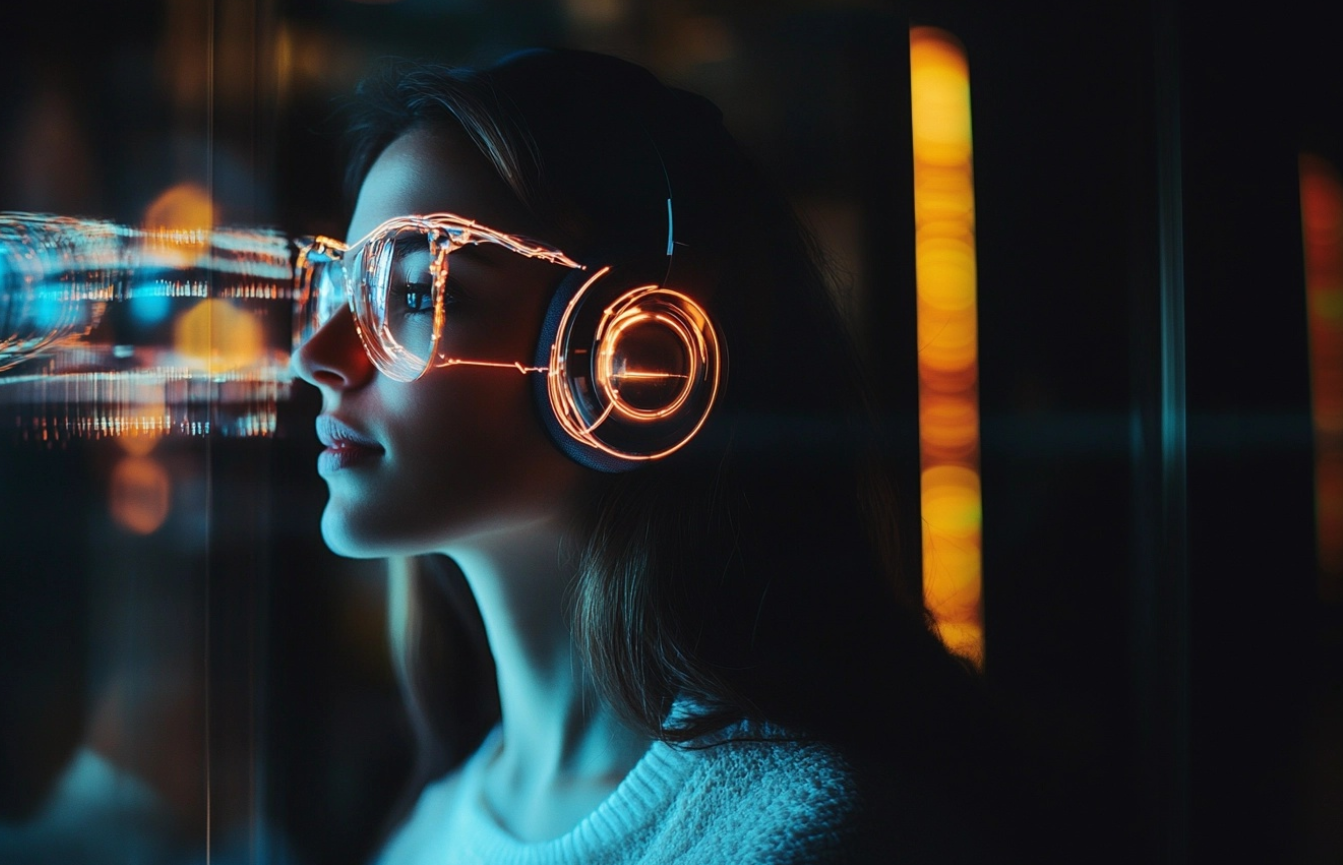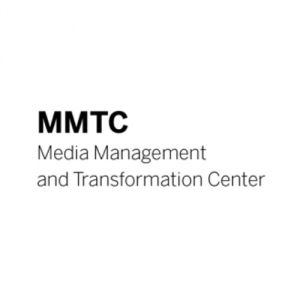Media Management and Transformation Centre (MMTC) at JIBS
Listening to Artificial Creativity: How AI is Shaping the Creative Process
Artificial Intelligence (AI) has dramatically reshaped many industries and marketing is no exception. With the rise of Generative AI (GAI), content creation processes have become more efficient, enabling marketers and creators to streamline their work processes. According to the European Commission, AI offers significant economic and social benefits, particularly within the Cultural and Creative Sectors (CCS). As digital transformation progresses, marketers need new ways to engage audiences, and platforms like podcasts—mixing information with entertainment—have surged in popularity. But how does AI influence creativity? But what are the impacts of GAI on creativity, and what challenges arise from its use?

An AI generated image using the headline of this blog post as a prompt
This blog draws insights from a Master’s thesis by Lisa Klofsten, one of the winners of the MMTC Master's Thesis Awards. The thesis explores the role of GAI in the creative process and how it impacts content creators.
The Motivation Behind Using Generative AI
Klofsten's research explored what drives content creators to engage with GAI and how using it influences their creativity. Several motivations were identified, including curiosity about the technology, using GAI as a brainstorming co-creator, and its ability to improve efficiency by automating non-creative tasks. Creators found that GAI could inspire new ideas, assist in content refinement, and provide valuable information—all while saving time.
From a practical standpoint, GAI can lead to significant cost savings by reducing the need to outsource routine tasks. However, as digital content creation expands, GAI’s ability to free up time for creators to focus on genuine creative work is a key benefit. Yet, these advantages come with potential risks.
The Risks of Over-Reliance on AI
While AI can make processes more efficient, there’s a risk of over-reliance. Creativity is deeply personal and shaped by individual experiences and emotions. Relying too heavily on AI might lead to a loss of originality, as creators stop actively engaging in the creative process and rely more on automated outputs. Since creativity is deeply rooted in personal experience and emotion, relying too much on AI could dilute human contributions.
Klofsten's research is grounded in interpretivism, using Interpretative Phenomenological Analysis (IPA) to understand how creators perceive their interactions with GAI. Through semi-structured interviews, creators acknowledged that while AI enhances efficiency, it’s crucial to retain human input to ensure genuine innovation. Relying too heavily on AI could risk creativity becoming formulaic, losing its emotional depth.
The core challenge then lies in maintaining a balance between human creativity and AI assistance. GAI offers valuable insights and new perspectives, but it’s crucial to keep human input at the center. AI can process vast amounts of data and suggest patterns, but it lacks the intuition, emotional depth, and personal experience that make human creativity unique. As companies increasingly adopt AI tools, managers should focus on equipping their teams with the skills necessary to work alongside these technologies while maintaining creative integrity. It’s essential to critically review AI outputs to ensure accuracy and prevent the spread of misinformation or bias, a particular challenge when working in diverse cultural contexts.
Future Directions
There are still many unknowns about how AI affects creativity, especially across different industries and cultural environments. Future research should explore how AI tools like GAI influence creativity in various contexts, and how specific tools, such as ChatGPT, are used differently across creative industries. Ongoing research will need to explore this evolving relationship between human and machine creativity.
Author
- Coordinator
Lecturer Business Administration - Jönköping International Business School
- philippajoy.berglund@ju.se
- +46 36-10 1945
Detta är en bloggtext. Det är skribenten som står för åsikterna som förs fram i texten, inte Jönköping University.



.png)

.jpg)
